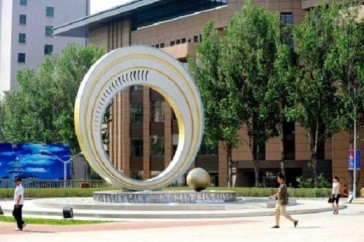More than 200 Chinese and foreign experts convened to discuss the country’s space exploration ambitions at a recent conference sponsored by the Space Technology Commission of the China Society of Astronauts held at the Harbin Institute of Technology, the Shanghai-based New Outlook reported.
Among the topics of discussion in the conference included proposals on China's manned lunar mission, the manned space exploration mission and a manned mission to Mars.
Liu Jizhong, director of the Lunar Exploration Program and Space Engineering Center under the State Administration for Science, Technology and Industry for National Defence, said that the country's space program encompasses the Mars exploration, the next stages of lunar exploration and related research, including asteroid exploration and the exploration of Jupiter and beyond.
Liu added that out of the 10 major international space aeronautics events last year, seven of them were related to space exploration. These include China's three-stage unmanned mission to the Moon and back, the maiden flight of the American new-generation Orion spacecraft and the landing of the Rosetta probe on a comet made by the European Space Agency.
He said that around 40 space missions will be carried out in the next 10 years, involving Russia, Europe, Japan, India, South Korea, the U.S., and the United Arab Emirates.
Liu urged the government to make use of creativity and not to rely on the path set by others, as future space exploration has many challenges that include increasing the speed of space travel and issues on how to provide fuel and power for missions farther away from Earth, as well as the use of robots to explore hostile environments.
Hence, China's planetary science research must be strengthened and greater international cooperation is needed, Liu said.
Wu Weiren, chief engineer of China's lunar exploration plan and the head of the space exploration technology commission of the China Society of Astronautics, said that the starting point for China's future space exploration plans is the Moon mission, as he commended the success of China's Chang'e 1, 2 and 3 spacecraft.
Wu said that Chang'e 2 passed by asteroid 4179 Toutatis, after completing its a 100-kilometer-high lunar orbit in the L2 position of orbit. It will now become a satellite orbiting the Sun and is expected to return close to the Earth in 2029.
Wu added that space exploration technology still needs improvement in areas such as autonomous technology, trajectory design, new forms of energy and propulsion technology, space monitoring technology and load-bearing capabilities.


